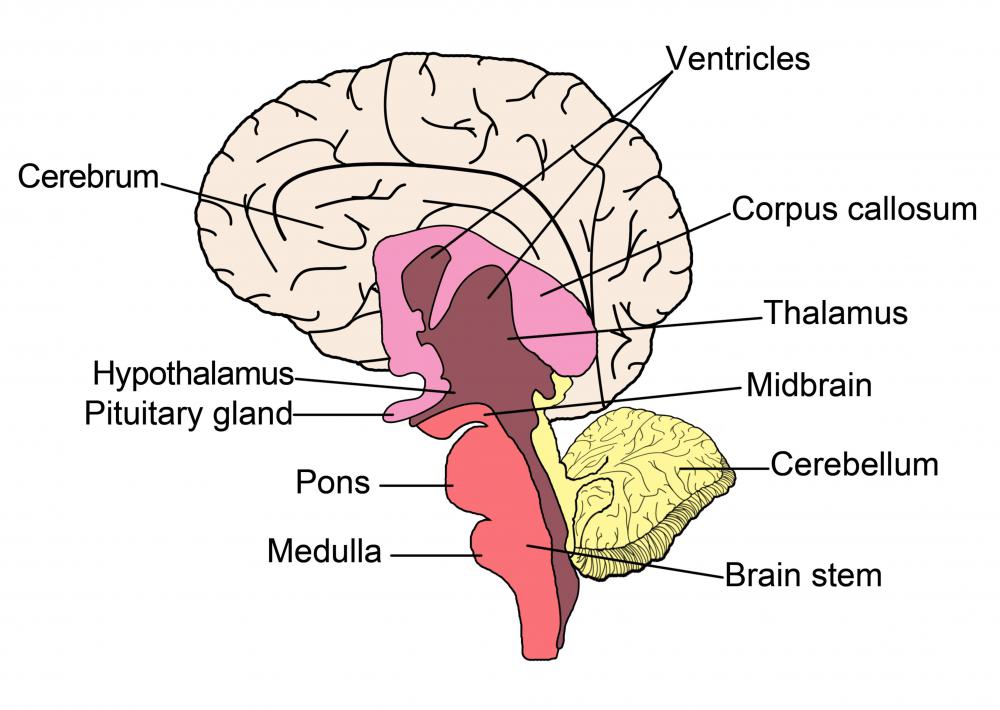At WiseGEEK, we're committed to delivering accurate, trustworthy information. Our expert-authored content is rigorously fact-checked and sourced from credible authorities. Discover how we uphold the highest standards in providing you with reliable knowledge.
What Are Hypothalamic Hormones?
The hypothalamus produces a multitude of hormones, which are chemical compounds important in regulating the internal environment of the body. They fall into three broad classes. The first class stimulates other organs of the body to produce hormones. Inhibiting the production of other hormones is the function of the second class. Different systems within the body are directly affected by the third class of hypothalamic hormones.
One class of hypothalamic hormones is the releasing hormones, which work by stimulating the production of other hormones. For example, the hypothalamus secretes thyrotropin releasing hormone (TRH), which stimulates the pituitary gland to produce thyroid stimulating hormone (TSH). TSH causes the thyroid to create thyroid hormones. High levels of thyroid hormone in the blood decrease the hypothalamic production of TRH, thus forming an inhibitory feedback loop. Establishing multiple levels of control for hormone production helps ensure that the body maintains a stable internal environment.

The hypothalamus produces a number of other releasing hormones. Gonadotropin-releasing hormone (GnRH) stimulates the pituitary gland to create follicle stimulating hormone (FSH) and luteinizing hormone (LH), both of which are important for regulating the reproductive system. The amount of growth hormone (GH) produced by the pituitary can be increased by the growth hormone-releasing hormone (GHRH). Similarly, corticotropin-releasing hormone (CRH) stimulates the production of adrenocorticotropic hormone (ACTH) from the pituitary gland, which is important for the regulation of the hormonal output of the adrenal gland.

Hypothalamic hormones can also be inhibitory in nature. Dopamine is considered to be inhibitory because it decreases the production of prolactin (Prl) by the pituitary. Prolactin is a hormone that is important in regulating the menstrual cycle and the breast milk production in females, and also contributes to maintaining general sexual function in males. Another inhibitory hypothalamic hormone is somatostatin, also known as growth hormone-inhibiting hormone (GHIH).

Some of the hypothalamic hormones have more direct effects. One example is vasopressin, also known as the antidiuretic hormone (ADH). This hormone causes the kidney to increase fluid retention, and is important in maintaining the correct levels of electrolytes such as sodium and potassium in the blood. Oxytocin, another hypothalamic hormone with direct effects on the body, is important for stimulating uterine contractions during childbirth and allowing milk to be released from a mother's breasts to a suckling infant. Some people refer to this hormone as the "love" hormone because high levels are also reported in patients who have a strong emotional connection to a partner.
AS FEATURED ON:
AS FEATURED ON:















Discussion Comments
Is there any way to "nourish" one's hypothalamus, to make it produce more gonadatrophin releasing hormone, naturally?
Post your comments